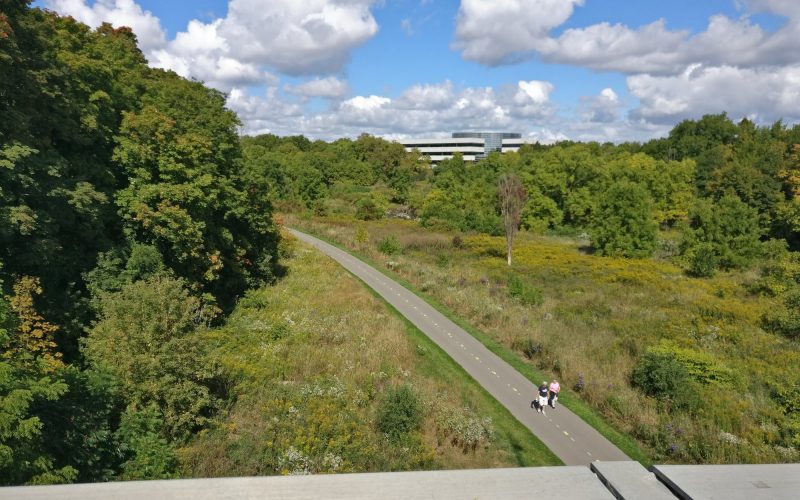Table of Contents
My background is web development. For years I have taken interest in Product Management (not to be confused with project management). I’ve transcended from just focusing on the (tech) tool to focusing on the problem you want to solve, or the value that you are trying to offer. One of the very core concepts that they will drill you starting Day 1 in product management school is: Focus on the problem, not the solution.
“Focus on the problem, NOT on the solution”
Sounds obvious, but let me explain the premise first (I’ll try briefly):
When you’re thinking of a business, an app, or anything to sell ideally you’d want to be solving a problem. Microsoft solved general computing. Companies like Tesla are trying to solve green and energy-efficient transportation. Sustenir Agriculture and Beyond Meat are trying to solve scalable and sustainable food production.
What ends up happening though–and this is prevalent with software people, startup guys/girls, or anything with an entrepreneural mindet–is that they come up with a solution, a tool, and THEN try to find the problem it can solve. I am was guilty of this.
The problem with this approach is that you might and up trying to solve a problem that does not exist. Maybe it does but most people don’t want/need to solve that problem hence less people will buy into the idea, much less with the actual product/service you’re trying to solve.
A crude example would be: “I just thought of an app idea! What if we create a <insert-already-existing-product-here> but it does <insert-slightly-different-feature-here>…”
~Well there you go. I just cited the two wrong things in that idea.
“Falling in love with your idea”
We were then taught and I had to rewire my brain to–as my instructor phrased it–not fall in love with your solution. And then he reminded me: “Focus on the problem, not on the solution”. Yes, it’s a great idea. You’re proud of coming up with it and what it can do. But you have to pull yourself out of the situation and be unbiased and just be objective about it: does it solve a problem? Are people looking for this? Would they buy/into the idea? Ultimately, does it provide value? It was tough for me to learn and get away from this habit, but I managed and I believe in this idea wholeheartedly.
“Why starting a business is hard”
So now if you follow the correct mindset (problem-oriented), you can understand why building a business is hard. Coming up with an idea is easy and the least important. Execution defines success. Even more general than that, numerous “problems” have been solved already, which hey, that’s a good thing. Now we’re actually just left with the hard-hitting ones.
“So how does this connect to solving climate change?”
Glad you’re asking. We know the core concepts by now (YOU DAMN SHOULD):
Lots of CO2…greenhouse effect…things that are not supposed to be warm are warming thus causing negative effects in the environment, food chain, economy, etc.
Glad you’re asking. We know the core concepts by now (YOU DAMN SHOULD):
Lots of CO2…greenhouse effect…things that are not supposed to be warm are warming thus causing negative effects in the environment, food chain, economy, etc.
We have ONE probem and we have confirmed it and everybody is sold to the idea of solving it. We have “buyers”.
This problem is caused by multiple factors/sub-problems. Global conversations offer solutionS. That’s the keyword I’m trying to get at. IT. IS. PLURAL.
Remember when I told you that software developers are prone to the falling in love with their solutions? Turns out it’s not just us. The general public does too; maybe you too (and there’s no shame in that). Maybe you believe that non-emission modes of transportation will solve the problem or at least “make the biggest dent” and so you’re waiting for that (No point if everyone individually builds their own Tesla company). Or how about the beef situation? Maybe illegal logging, maybe this, maybe that.
“Maybe you’re falling in love?”
What I want you realize is maybe you also just fell in love with your own solution? You believe and devote to that, which naturally makes you wait (if it’s something out of your control) which…in the grand scheme of things is kind of inaction. The inaction is basically what’s not helping (nothing to be ashamed of, but something to realize if ever). Remember, “focus on the problem, not the solution”.
There are multiple solutions to the one problem. We should realize that we don’t have to “just pick one”. Another point of paralysis is that some people think that if they pick one, they have to be really good at it. That is not the case. You can do only 5% of solution A, 20% of solution B, and then 70% of Solution C.
“Any progress is progress at this point”
I’m not even asking you to drastically change your lifestyle. I’m just talking about the small and easy things you can control and change. Our goal for now is not to solve the problem, but to form habits (which in turn is the solution to our problem).
We’re getting to/almost past the point of no return anyways so you can’t do anything wrong at this point, believe me.
The logic is simple: “Too many CO2 floating around so either we get rid of it or (be preventive and) just not make more float around.”
Unfortunately we do not have a reliable and complete approach for one or the other so that’s why the world is trying to do mix-and-match. And again, there’s nothing wrong with that. Any emissions you cut down fulfills the latter. Any plant/tree you pee on to keep it alive technically fulfills the former.
Takeaway
So the last point and my most important call to action in this article is: set small goals, do small things and don’t wait for this one grand solution. Turn off and unplug your appliances. You don’t even have to make it through the year. Just focus on doing it once; do it tomorrow before you leave for work. And then that’s it! You can call it success. Then do it again whenever. Then try to do it once a week. The goal is to keep to goal small (which in turn is achievable). Indirectly you’re also trying to form a habit. You probably seen it around your social media: the Japanese call this as Kaizen.
Walk to the grocery once for lolz. Work from home from time to time to prevent driving emissions. Drive with AC off and windows down + drive efficiently. Just do ANY small thing that you can easily do with your capacity. If at the end of the year you can somehow calculate that you had 3% reduction in carbon emissions, imagine if EVERYBODY did it; that would be 3% progress in one year! Focus on the problem, not on the solution…and there are tons of them (solution; there are lots of problems too, but one at a time 🙂 )!
Side Note
Note that you will get resistance from people; based on my experience, two sets of people:
- The hardcore super green individuals: They will not value your little progress but rather would want you to go cold turkey. Mature and wise people, I don’t need to explain to you how you need to learn how to crawl first before you walk.
- People who–and I’m surprised these exist even with some of my friend circles–would pull you down, shame you for doing something good so that they can feel better about themselves because they. themselves. are. doing. squat. They understand the global problem and for some reason you do something and it has nothing to do with them, their ego and shame kicks in and somehow their perceived solution is to stop you. Like what the fuck right?
Be warned. If you face resistance, you know you’re doing it right.


